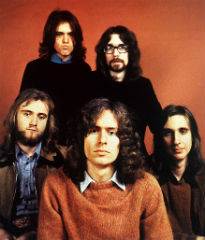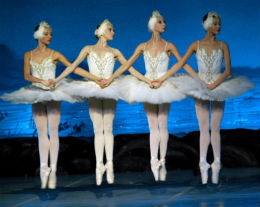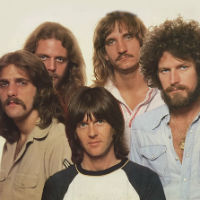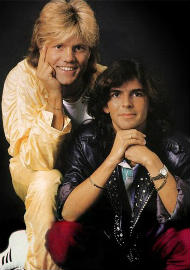THE UNBEATABLE KING OF WALSA JOHANN STRAUS
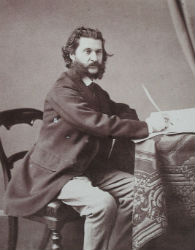 Dance melodies, which were called music for the feet, were treated condescendingly in any era. Opera, oratorios and symphonies have always been considered noble genres, but all kinds of quadrille, waltzes and polkas were classified as second-rate creations because of their entertaining nature. And only one Austrian composer managed to change this musical hierarchy, raising melodies for dances to previously unattainable symphonic heights. His name is Johann Strauss. He wrote almost half a thousand works. The works of the talented Strauss Jr. sounded in all corners of the world and continue to occupy a leading position in the repertoire of many theaters.
Dance melodies, which were called music for the feet, were treated condescendingly in any era. Opera, oratorios and symphonies have always been considered noble genres, but all kinds of quadrille, waltzes and polkas were classified as second-rate creations because of their entertaining nature. And only one Austrian composer managed to change this musical hierarchy, raising melodies for dances to previously unattainable symphonic heights. His name is Johann Strauss. He wrote almost half a thousand works. The works of the talented Strauss Jr. sounded in all corners of the world and continue to occupy a leading position in the repertoire of many theaters.
Rival son
Josef Lanner and Johann Strauss Sr. are considered to be the founders of the “Waltz Dynasty”. Their art seemed unattainable to many. But this was so until their main rival appeared on the horizon. Ironically, they became the composer Johann Strauss, the son of Strauss – Johann Strauss, Jr., who was born in Vienna on October 25, 1825.
Father predicted the eldest son Johann the future in the commercial sphere, but the second – Joseph – he determined for military service. Everything went according to plan, until his father discovered the seditious (in his opinion) passion of his offspring for music. His wife had to work hard to persuade him to allow his sons to play the piano.
Johann fascinated friends with his ability to improvise on a musical instrument. And later the father found out that the eldest son secretly learns to play the violin from everyone. Moreover, Franz Amon, who was one of the best musicians in the Strauss Sr. Orchestra, gave him lessons. Johann taught neighboring children to play the piano and thereby earned Amon’s lessons.
Top teachers
Soon, the Strauss family was faced with a serious test – the father went to one of his young fans, and Johann the Younger had to take on the maintenance of his relatives. That’s how he composer Johann Strauss, the son of the head of the family at age 18. Fortunately, the mother supported her son in everything, and most importantly, she took care of his musical education, despite financial difficulties. Mother carefully kept the notes of the first Strauss waltz, which he wrote at age 6. Thanks to the efforts of Anna, Johann studied with the ballet tutor of the Vienna Opera House and a leading teacher of the conservatory in composition. But Johann considered the bandmaster of one of the Vienna churches – Abbot Joseph Drexler, who was a connoisseur of counterpoint and harmony. It was he who made the young composer compose spiritual works. Strauss Jr. at that time dreamed of “earthly” music, but the teacher did not disobey, and soon his cantata was publicly performed in one of Vienna’s temples.
The wise Drexler found incentive for Johann to engage in church music. He allowed him to play the organ and violin in the church where he was regent.
Good morning, Strauss son
Once, the abbot heard a waltz on an organ performed by Strauss when he entered an empty temple. Johann stood his ground – he wanted to lead the dance chapel and compose composer Johann Strauss-dance music. It was up to the “small” – the young man had to find qualified musicians. He could not allow his team to be worse than his father. And on one Sunday of October 1844, posters and the press of the city announced the upcoming concert of young Johann Strauss. The audience was intrigued, because Strauss Sr. was barely 40 years old, he was still full of creative energy, and then his son was already stepping on his heels. After the concert, newspapers were full of rave reviews. Critics wrote: “Good night, Lanner, good evening, Strauss father, good morning, Strauss son!”
Revolutionary sympathies
The young composer did not just take it, but grabbed the baton from the hands of his predecessors. And although his first works did not differ much in form, the composer Johann Strauss was the son of the melodies of his father and Lanner, but they already felt the power of talent.
When the revolutionary year of 1848 came, Johann warmly responded to political events and supported the people. He created the March of the Revolution, which sounded like a call to fight. This music quickly became the most popular work of the rebels, having received a second name – “Vienna Marseillaise”. However, the Vienna uprising was crushed, and Strauss Jr. did not forget his revolutionary sympathies. Johann was not invited to the court for a long time, and his waltzes did not sound at the emperor’s balls.
Such intense work quickly undermined the health of the young musician. From overwork he became seriously ill. Colleagues knew what an exhausting work it was to lead the chapel. Johann handed over the management of the collective to his brother Joseph, and when he fell ill, another brother came to the rescue – Edward. The Strauss family has become the idol of all of Vienna. Satirists of that time called them wholesale and retail music dealers.
